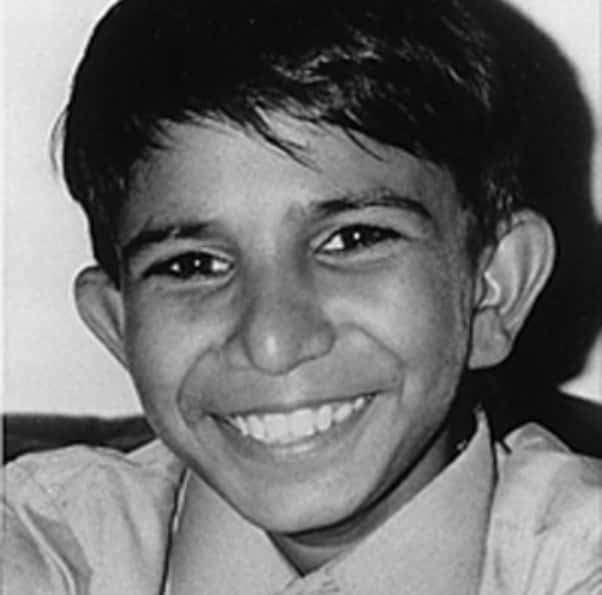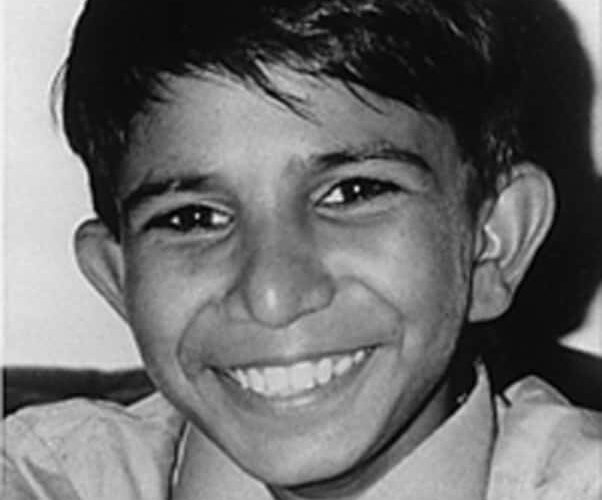Iqbal Masih and the History of Child Labour in Pakistan

Iqbal Masih was a young boy from Pakistan who became famous for his fight against child labor. Forced to work in harsh conditions from a very young age, Iqbal’s story shows the reality of child labor in Pakistan.
He spent his short life bringing attention to this problem and is remembered for his bravery and strength.
Who Was Iqbal Masih?
Iqbal was born in a small village called Muridke near Lahore, Pakistan. His family was very poor. Iqbal’s father, Saif Masih, left the family soon after Iqbal was born, leaving his mother, Inayat, to take care of the children on her own. She worked as a cleaner, but her income was very low, and it was hard for her to feed her children.
For the first few years of his life, Iqbal was like any other child. He spent his time playing in the fields near his small house. But his life changed completely when he was only four years old.
How Iqbal Was Forced Into Child Labor
In 1986, Iqbal’s family needed money for his older brother’s wedding. In Pakistan, poor families often have only one way to borrow money—they ask local employers who lend money in exchange for child labor. This is known as bonded labor.
To get money for the wedding, Iqbal’s family borrowed 600 rupees (about $12) from a man who owned a carpet business. In return, Iqbal had to work for him to pay off the debt. Without being asked or understanding what was happening, Iqbal was sent to work at this carpet factory. This would be the start of his struggle as a child laborer.
The Hard Life of a Child Laborer
Iqbal’s job was to make carpets, a very difficult and detailed job. First, he had to work for one full year without any pay to learn the skills. During this time, everything he ate and used was added to the original debt. If he made mistakes, he was fined, which also added to the debt.
The debt grew because of high interest rates added by his employer. This meant that even as Iqbal worked hard, his debt continued to increase. By the time he was ten years old, his debt had reached 13,000 rupees (about $260). Many employers keep increasing the debt to keep children working for life.
The conditions at the carpet factory were terrible. Iqbal and other children had to sit on hard benches and bend over to tie tiny knots in the carpets. They worked six days a week, 14 hours a day, with very few breaks. The room was hot and stuffy, with no fresh air, to protect the wool. The children were also not allowed to talk to each other. If they got tired or lost focus, they could be punished.
If a child complained, tried to escape, or became sick, they faced harsh punishments. These included being beaten, tied to their workbench, locked in a dark closet, or even hung upside down. After completing his training, Iqbal was paid 60 rupees (about 20 cents) a day, which was far too little to ever pay off his growing debt.
Meeting the Bonded Labor Liberation Front (BLLF)
After working in bonded labor for six years, Iqbal heard about an organization called the Bonded Labor Liberation Front (BLLF). The BLLF was working to free children and adults trapped in bonded labor. One day, after work, Iqbal sneaked away to attend a meeting of the BLLF. At the meeting, he learned that the Pakistani government had banned bonded labor in 1992. The government had even canceled all debts owed to employers, meaning Iqbal’s debt was technically no longer valid.
This news shocked Iqbal and gave him hope. He met with Eshan Ullah Khan, the BLLF president, who helped him get the paperwork he needed to prove his freedom. Iqbal didn’t just want to free himself—he wanted to help other children in similar situations.
After gaining his freedom, Iqbal went to a BLLF school in Lahore. He studied very hard, completing four years’ worth of school in just two years. He also became an activist, joining protests and meetings to speak out against child labor. He was brave enough to go undercover to investigate factories, helping close down these businesses and freeing hundreds of children.
Iqbal’s Fame and Determination
Iqbal started speaking to larger audiences, telling his story to the world. His bravery and determination inspired many people, and his speeches gained international attention. He wasn’t afraid of crowds and spoke with so much passion that people noticed him and wanted to help.
Although Iqbal was still young, the years of hard labor had affected him. He was very small for his age, weighing only 60 pounds and standing less than four feet tall at age ten. Years of malnutrition and overwork had damaged his health; he had kidney problems, a curved spine, and chronic pain. Despite his struggles, he never gave up his fight for freedom.
When Iqbal visited the United States to receive the Reebok Human Rights Award, he loved watching cartoons and playing computer games. Even though he had lost his childhood to work, he still enjoyed simple pleasures.
A Life Tragically Cut Short
Iqbal’s activism and fame brought him many enemies. Powerful people in the carpet industry did not like that he was speaking out against them, and Iqbal received several death threats. He did not let the threats stop him from continuing his work.
On April 16, 1995, Iqbal was visiting his family for Easter. After spending time with his mother and siblings, he went to his uncle’s house with two cousins. While they were on their way, someone shot at them. Iqbal was killed instantly, while one of his cousins was injured.
The exact reason for Iqbal’s murder remains unclear. At first, people said that a farmer accidentally shot Iqbal after a misunderstanding. However, many people believe that people in the carpet industry ordered his murder because they wanted to silence him. The true story of his death remains a mystery.
On April 17, 1995, Iqbal was buried, with around 800 mourners attending his funeral. His death was a great loss, but his story continued to inspire people worldwide.
The Legacy of Iqbal Masih
Iqbal Masih’s story has brought international attention to the issue of child labor. Even after his death, he remains a symbol of bravery and hope for children trapped in bonded labor worldwide. Thanks to Iqbal’s efforts, more organizations and activists work to protect children’s rights and fight against child labor.
Iqbal’s life shows the importance of fighting for justice, no matter how young or small one might be. His courage continues to inspire people to this day, reminding the world that every child deserves a life free from exploitation and filled with opportunities.
FAQ: Iqbal Masih and Child Labor in Pakistan
– About Iqbal Masih
Iqbal Masih was a young boy from Pakistan who was forced into bonded labor at the age of four. After gaining his freedom at age ten, he became an advocate against child labor, inspiring people worldwide. His efforts shed light on the serious issue of child exploitation in Pakistan, and he became a symbol of hope and resilience for others.
– Understanding Bonded Labor
Bonded labor, also known as debt bondage, is a practice where individuals are forced to work to repay a debt. In many cases, poor families with no other options borrow money from local employers in exchange for the labor of their children. Due to high interest rates and added fines, many children become trapped in bonded labor for life, unable to escape the growing debt.
– Iqbal’s Early Life and Forced Labor
Iqbal was born in a poor family in Muridke, a village near Lahore. His family borrowed money from a carpet factory owner to pay for his brother’s wedding, and in return, Iqbal had to work as a carpet weaver. Conditions in the factory were terrible, with long hours, harsh punishments, and strict rules. By age ten, Iqbal’s debt had increased despite years of labor, as the factory owner kept adding interest and penalties.
– Finding Freedom
Iqbal’s life changed when he attended a meeting held by the Bonded Labor Liberation Front (BLLF), an organization fighting against bonded labor. He learned that bonded labor had been banned by the Pakistani government in 1992, which meant he no longer legally owed anything. With the help of BLLF, he gained his freedom and dedicated his life to helping other children in similar situations.
– Impact of Iqbal’s Activism
After being freed, Iqbal attended a special school run by the BLLF and quickly became a strong advocate for children’s rights. He spoke at events and meetings and shared his story internationally. Despite his young age, Iqbal’s determination and courage gained attention worldwide. His speeches and advocacy played a significant role in raising awareness about child labor and bonded labor in Pakistan.
– Iqbal’s Health and Challenges
Years of hard labor had taken a toll on Iqbal’s health. He was very small for his age and suffered from several health issues, including kidney problems and a curved spine. Although his physical growth had been affected, his determination remained strong. Iqbal’s experiences made him mature beyond his years, and he used his past to fuel his passion for justice.
– A Tragic End
On April 16, 1995, Iqbal was tragically killed in a shooting incident that remains a mystery. While some believe his death was an accident, others suspect it was a targeted act by people in the carpet industry who saw Iqbal as a threat to their business. His death sparked outrage and drew even more attention to the issue of child labor.
– Iqbal’s Legacy
Iqbal Masih’s story has continued to inspire people around the world. He remains a symbol of hope in the fight against child labor and is remembered as a brave young hero who stood up against injustice. His work has encouraged other organizations, activists, and governments to address child labor, making him an enduring icon for children’s rights.

